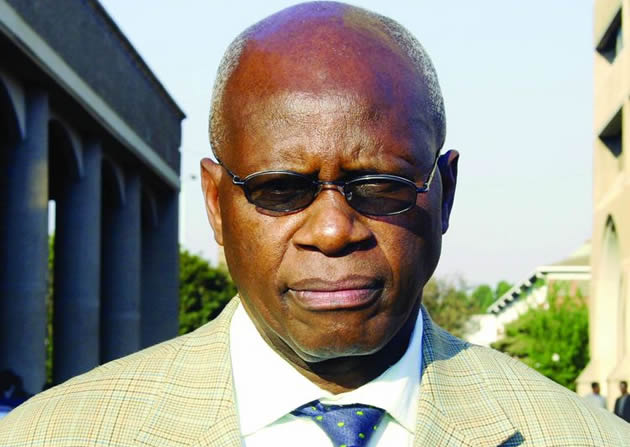Editorial Comment: Lima deal great, but sanctions must go

We celebrate the government’s clinching of a debt clearance deal with multilateral financial organisations in Lima, Peru, on Thursday.
The meeting was eagerly awaited as the government had announced weeks earlier that the Minister of Finance Patrick Chinamasa and Reserve Bank Governor, John Mangudya, were to travel to Lima with a proposed roadmap with regards to tackling the debt albatross that has weighed down the economy for years. The international financial institutions (IFIs) represented during the Lima meeting are those that control the global financial system — the International Monetary Fund, World Bank and the African Development Bank. Zimbabwe owes the IMF $110 million, World Bank $1,15 billion and AfDB $601 million.
Zimbabweans heaved a collective sigh of relief on Friday when Minister Chinamasa announced the agreement reached on the sidelines of the 2015 World Bank and International Monetary Fund annual meeting.
“The strategy that was presented by the government entails clearing Zimbabwe’s external payment arrears with the IFIs through a combination of using the country’s own resources, arrangement of bridge finance with regional and international banks, and the usage of bilateral loan facilities,” said Minister Chinamasa.
The debt has to be cleared by the end of April next year, he said on Friday.
He told our sister paper, The Sunday Mail:
“This is a major breakthrough in the financial history of the country. The developments in Lima are the first important milestone and serious step towards resolution of the debt arrears clearance and the efforts to address the debt overhang of this country which is an albatross around our efforts to recover the economy. It is worth celebrating as it will open doors for the country to obtain the much needed long term capital needed to total economic transformation.”
The deal sets the tone across the international financial sector. We expect it to unlock all the potential, all the finance that the economy has been failing to access because of the stand-off with the global funders. The economy is screaming due to liquidity constraints and lack of cheaper, long term finance for industry to retool so as to attain greater efficiency and reduce production costs.
Now, industry and commerce look forward to the government managing to extinguish the $1,8 billion debt so that their chances of accessing funding thereafter improves.
We note that the deal is an important step towards the return of Zimbabwe into the international financial system but even if the April target is attained, we will still be in debt to the tune of $8 billion to other foreign lenders and that debt also has to be repaid. This represents a continuing challenge towards the resolution of the debt issue.
However, we realise that if we manage to clear that important step, the economy would recover its lost creditworthiness. We hope other lenders out there would resume working with the productive sectors of the economy through providing them with money. This should help reboot the economy, and when that happens, the government is expected to be able to raise money to also repay the $8 billion debt or negotiate more flexible payment terms.
The Confederation of Zimbabwe Industries, like many other business organisations have often raised the debt situation as a millstone to their recovery and growth.
We quote CZI president, Busisa Moyo elsewhere in this issue saying:
“The big thing that’s affecting confidence right now in terms of the global outlook and the way Zimbabwe is viewed is our debt problem. Zimbabwe has an external debt of $10 billion. The pricing of money to the private sector and so on is not good.”
The Lima deal should raise hope for better things post April 2016. As we celebrate the milestone, we must not forget to continue demanding that the illegal sanctions must go.
Like the debt trap, the illegal sanctions are another huge artificial impediment to economic recovery.
In reality, it will not help much to be clear of debt to the IMF, World Bank and AfDB yet the US, in terms of its sanctions law, the Zimbabwe Democracy and Recovery Act (Zidera), forbids American companies to do business with Zimbabwe. The 2001 law also instructs America’s executive director to each international financial institution to oppose and vote against any extension by the respective institution of any loan, credit, or guarantee to the government of Zimbabwe; and any cancellation or reduction of indebtedness owed by the government to the United States or any international financial institution
It means as long as Zidera exists and despite the clearance of the debt to the Bretton Woods institutions, Zimbabwe will still not access lines of credit from the institutions. Therefore, we call on the US and Europe to remove their embargoes so that the economy gets back on the road to recovery and growth in a more sustainable manner.
But we can justifiably interpret the approval of the government’s debt repayment framework by the US-controlled IMF, World Bank and AfDB as a hint that they also want sanctions to go. If they wanted the screws to remain tightened, they could simply have rejected the plan. So we hope the Lima agreement is a signal that the US and Europe are working towards removing the illegal sanctions.









Comments